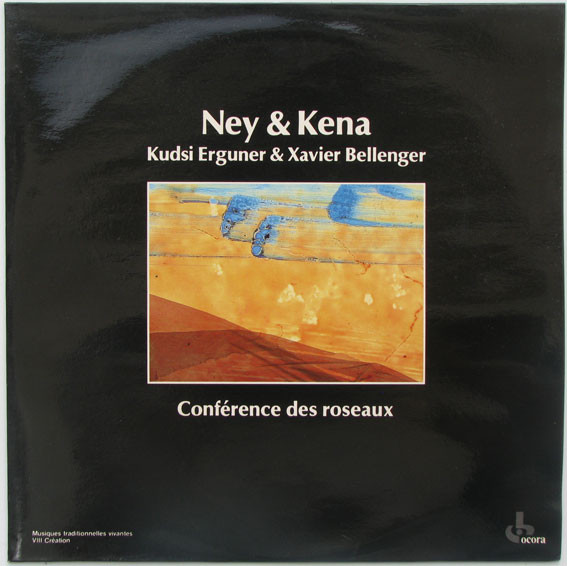

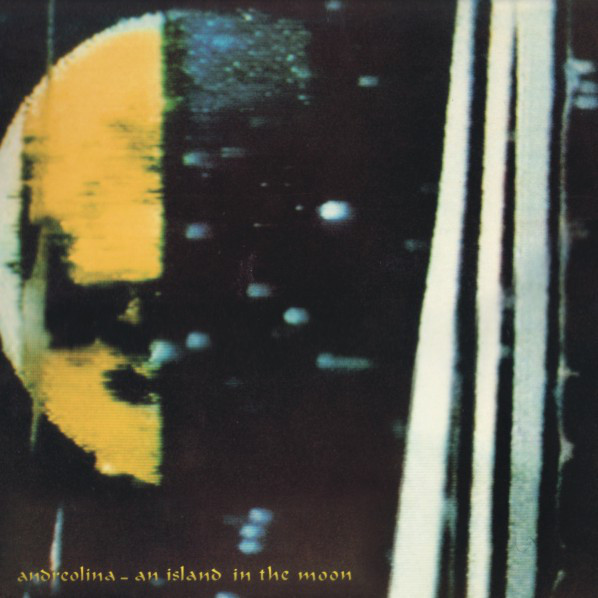
Sublime collaboration between Silvio Linardi (who’s collaborated with David Sylvian, Hector Zazou, Roger Eno, and others) and Pier Luigi Andreoni (whom you may know from The Doubling Riders). Ricardo Sinigaglia makes a few appearances too, first on piano and then on an Akai S 900. This was their only release as Andreolina.
Sprawling, weightless instrumentals that never stay soporific for too long. You can hear Andreoni’s classical training in much of this, and not just because of how much oboe there is, but structurally too. The name of the album comes from an unfinished piece of William Blake prose, and some of the song titles are Blake references as well–so while it might be power of suggestion, there seem to be tinges of romanticism dotted throughout, whereas other moments veer off into jazz. Lots to love here for Elicoide fans.
As an aside, this was released on ADN, the same label responsible for Tasaday’s L’Eterna Risata and the aforementioned Sinigaglia record. Depending on who you ask, ADN can stand for A Dull Note, L’amore del Nipote, or Agnostic Dumplings Nursery.

Here’s my newest episode of Getting Warmer for NTS Radio. Funk, synth pop, and lots of vocal harmonies. If you like it, you can download an mp3 version here. Enjoy!
Tracklist:
1. Deniece Williams – Free
2. Shinichi Tanabe – Hell’s Gate Island Theme
3. Marju Kuut & Uku Kuut – I Don’t Have To Cry Anymore
4. Koo Dé Tah – Over To You
5. Dee C. Lee – Hey What’d Ya Say?
6. Jennifer Vyban – Miracles
7. Mami Koyama – Love Song
8. Love, Peace & Trance – Hasu Kriya (Single Version)
9. Brenda Ray – Another Dream
10. Velly Joonas – Käes On Aeg
11. Astrud Gilberto – Dindi
12. Syoko – Sunset
13. Minako Yoshida – Gogo No Koibito
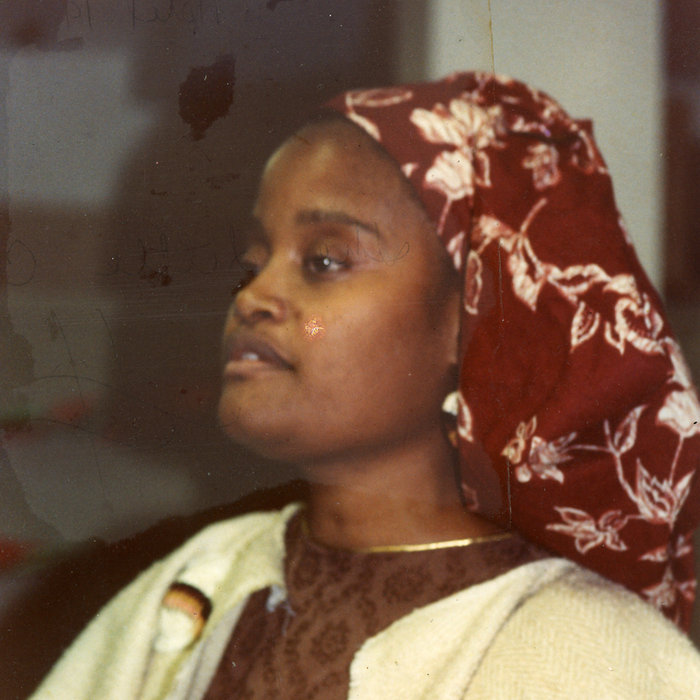
I was deeply saddened to hear of the passing of legendary jazz trumpeter (and occasional zither player) Kelan Phil Cohran at the age of 90 on Wednesday. While his accomplishments are too significant to fully do them justice, he played trumpet with Sun Ra and His Arkestra, co-founded the Association for the Advancement of Creative Musicians (AACM), was a respected educator (one of his students was a young Maurice White), opened the Afro-Arts Theater in Chicago, and invented the Frankiphone (aka space harp), an electric mbira. He also recorded extensively with The Hypnotic Brass Ensemble, a group composed of eight of his sons. Cohran was still regularly performing live until quite recently.
Though African Skies was recorded a later stage in his career (by which point he had already been given the honorific Kelan, meaning holy scripture, by Muslim scholars during a trip to China), it’s considered by many to be a cosmic jazz masterpiece and one of his finest works. His first record since his 1969 Malcolm X memorial, this was recorded live at the Adler Planetarium in Chicago as a glowing tribute to Sun Ra, Cohran’s mentor and friend who had recently passed away. African Skies is mostly acoustic and fairly minimal, but for all its sparsity, it’s hypnotic, deftly expressive, and all the more powerful for doing less. Trumpet, harp, frankiphone, congas, violin uke, guitar, flute, bowed string bass, clarinet, trombone, and vocal riffings by Aquilla Sadalla that, whenever I’ve put this on in social settings, have invariably prompted at least one person to ask what we’re listening to. If the back cover is any indication, this performance looked just as incredible as it sounded.
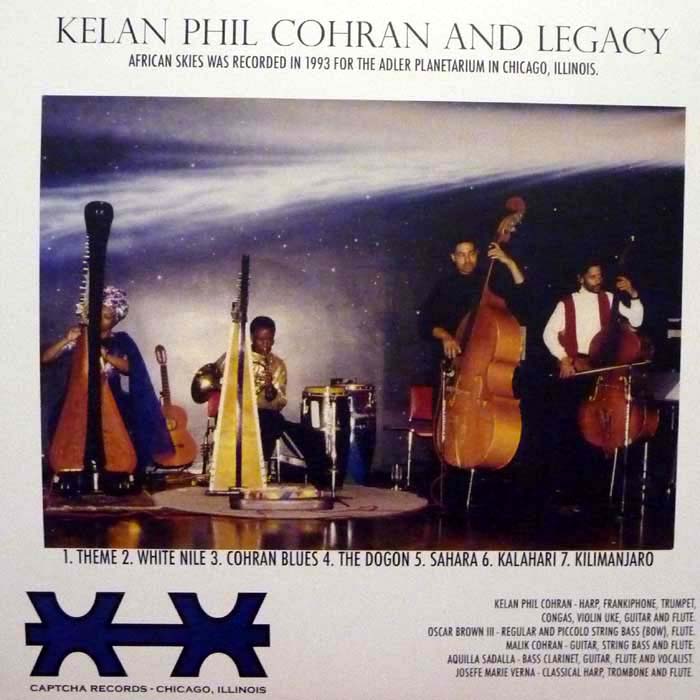
Though I’ve always considered myself a jazz idiot, this record has been an ideal gateway drug into the worlds of cosmic and spiritual jazz, and I can’t think of a better tribute to Cohran’s legacy than giving this some airtime this weekend. Out of respect for his family I’ll be taking down the download link in the next few days, so if you want it, get it now. Thank you for everything, Kelan Phil Cohran!
buy / (download removed)
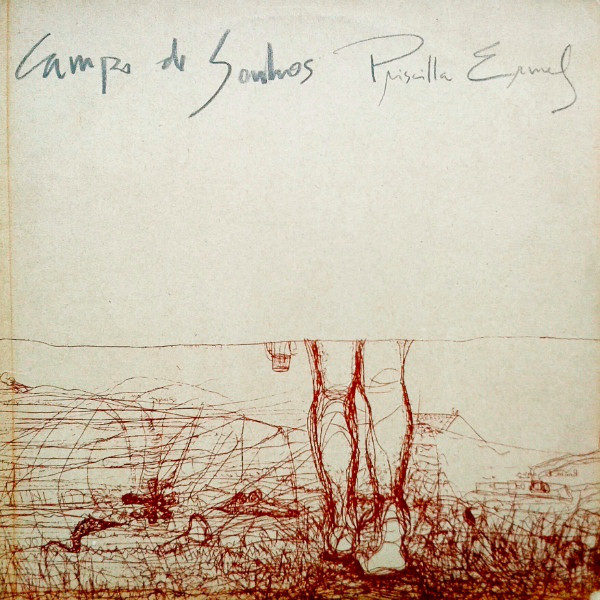
A stunner. Priscilla Ermel is a Brazilian anthropoligist, video artist, and musician based at the Laboratório de Imagem e Som em Entropologia in University of Sao Paulo. If you’ve heard Music From Memory’s extraordinary Outro Tempo compilation, you’ve heard two of her songs, one of which is included on this record. You can watch some of her video work on Vimeo. Also–a cool fact that I was unaware of until just now courtesy of 20 Jazz Funk Greats:
In her ethno-musicological researches, she has studied the indigenous Tupi Mondé people of Brazil, as well as the Dogon in Mali- yes, the same Dogon who, as myth has hit, descended from the Sirians, and were soundtracked by Craig Leon in his Anthology of Interplanetary Folk Music.
Campo de Sonhos (“field of dreams”) is a collection of cinematic instrumental textures that lean alternately towards jazz and classical. There are a few gorgeous, guitar-centric tracks that employ both acoustic (viola caipira) and electric, but the electric moments are more sparse, moody, and textural; almost Durutti Column-esque. Elsewhere, a laundry list of instruments: kalimba, berimbau, viola-de-cocho, chirimia, ocarina, nepalese flute, Jew’s harp, piano, saxophone, cello, violin, synth, and a slew of drums including congas, surdo, bombo, gongs, cultrun, and cajón. And while there are moments of uninhibited percussive joy and spiritual jazz, these songs feel focused, elegant, even stripped back at times. Thank you Kosta for the reminder to share an old favorite!
Also, if things look a bit rough around here, it’s because I’ve just switched to WordPress and am still finding my way around–am hoping to have more user-friendly navigation and archive up soon. Please bear with me in the meantime! (I’d also like to thank a very nice reader named Kenji who spent a solid hour and a half writing and tweaking code and holding my hand through learning about plug-ins to fix a few hundred broken links. Thanks Kenji!)

Vangelis Katsoulis was born in Athens in 1949 and since then has been prolific, dabbling in minimalism, jazz, choral, and symphonic work. As his second full-length, The Slipping Beauty is a startlingly polished collection of 16 short pieces, many of which feel more like impressions than songs. I would guess that Katsoulis was influenced by the pulsing, layered structures of gamelan (“Overcast”), as well as by traditional Japanese drumming (“The Sound Of The Stone”). Despite some of these more historical reference points, this music is highly futuristic, with tracks like “The Slipping Beauty” feeling like a synthetic cyborgian homage to Steve Reich. From the liner notes: “The title of this record is a paraphrase of Tchaikovsky’s The Sleeping Beauty. It points at the idea of beauty which comes to the artist as an inspiration and suddenly vanishes. In addition it’s a reference to the fleeting nature of physical beauty.”
As an aside, three of these tracks have been remixed and released together as The Sleeping Beauties, including this very good Telephone rework of the title track, though confusingly the record itself has yet to be reissued.
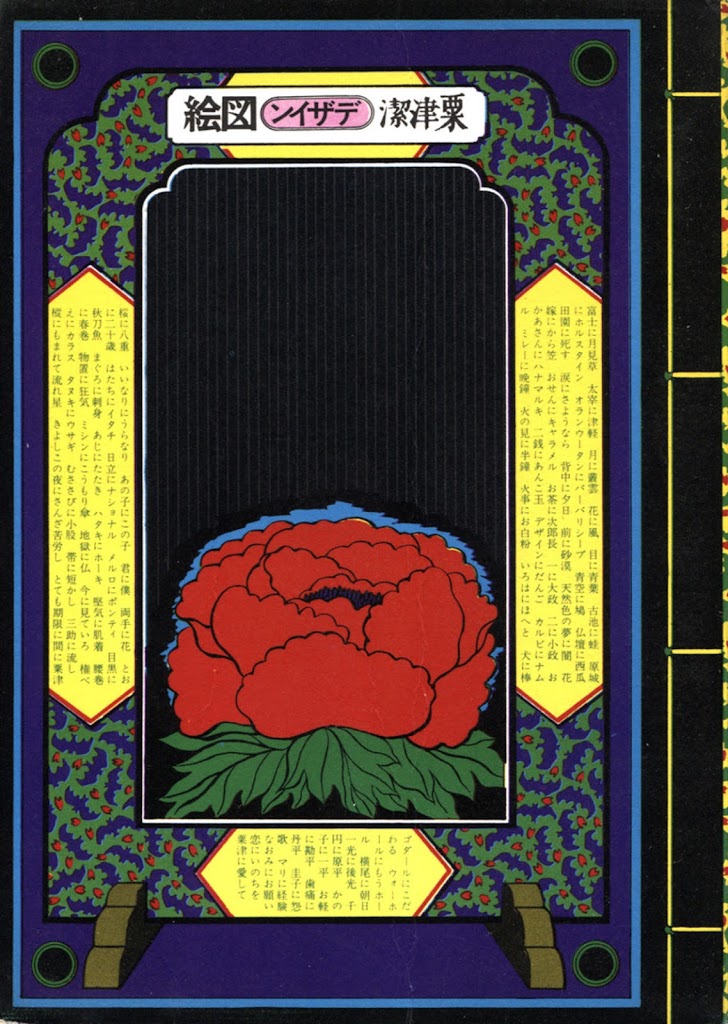
Listen to my newest mix for NTS Radio below. Moody slow-burners, futuristic textures, and a few anachronisms. If you like it, you can download an mp3 version here. Enjoy!
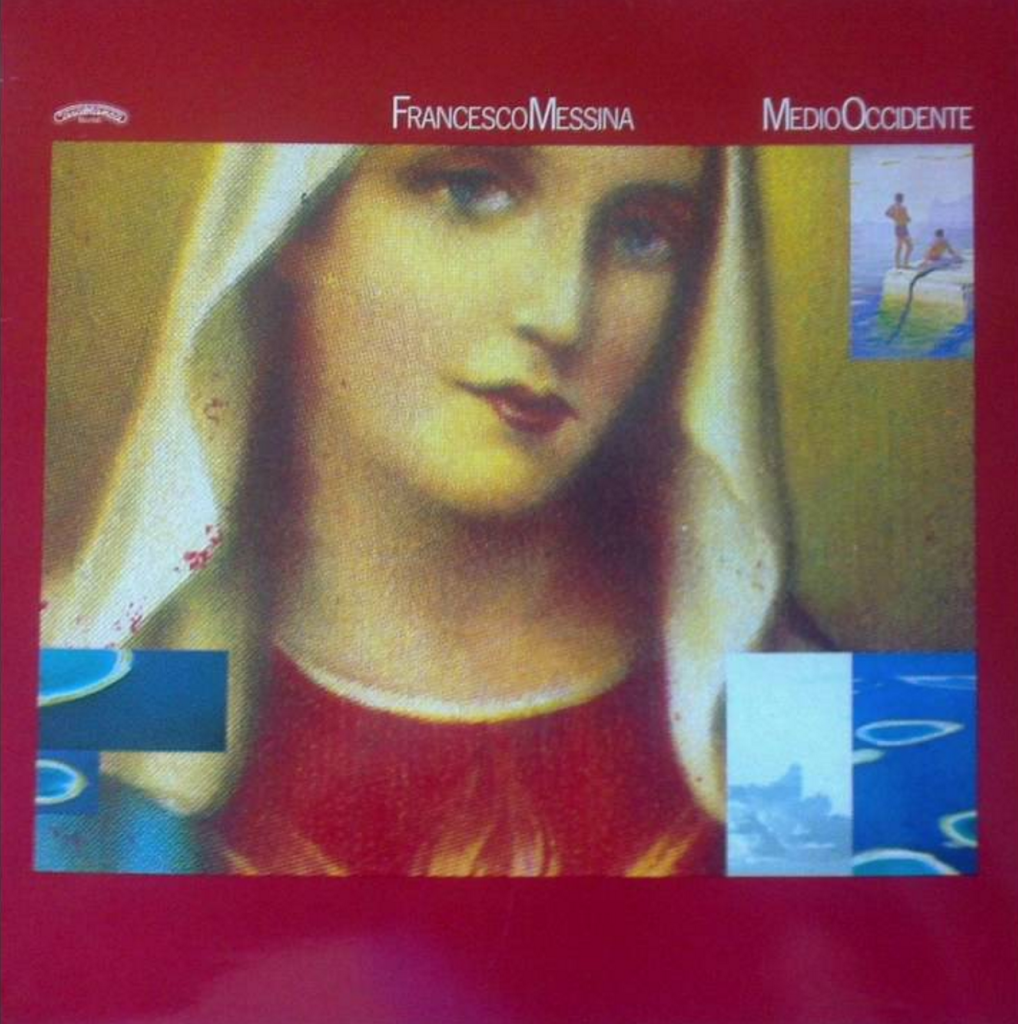

A bit out of character (guitars!), but I’ve been thinking about Portland a lot this week, and Cleaners From Venus reminds me of biking around leafy Oregon residential areas in the spring. By 1987 the band had effectively became a vessel for Martin Newell’s oddball pop ethos, one which was fraught with contradictions. Sharp, smart, often really pretty pop songs recorded in ragged-edged irreverence; serious musicianship undercut by clownish interlude samples; distant, aching vocals suggesting alienation, followed by frenetic, jangling optimism–all this marked by Newell’s signature relentlessness. His enormous catalog and the consistency of his output in spite of having been largely ignored by the music industry until much later in his career suggest an incredible commitment to a sensibility that, in spite of drawing so heavily on nostalgic references, was still far ahead of its time. This is one of my favorite of his, and it hasn’t been printed since 2003. Enjoy!
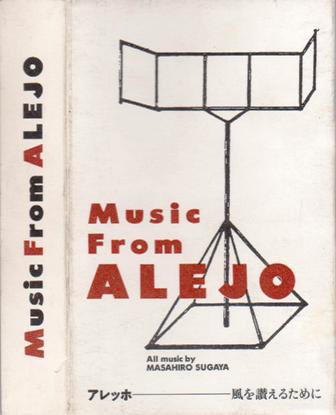
Really sparse and beautiful ambient minimalism made to score the dance theatre piece Alejo performed by the Pappa Tarahumara dance company (which is still active today, and apparently once performed at Reed College). Ebbs and flows of activity, with busier synthetic tracks like “Straight Line Floating In The Sky” and “Mistral,” gauzy pastoral moments suggestive of Hiroshi Yoshimura’s Green (“Theme of Alejo”), and piano meandering that reminds me of Toshifumi Hinata’s jazzier piano moments–but all done a little bit more roughly, this being a self-released cassette. Prismatic and ringing. Perfect picnic soundtrack.
(download link removed as reissue is forthcoming!)